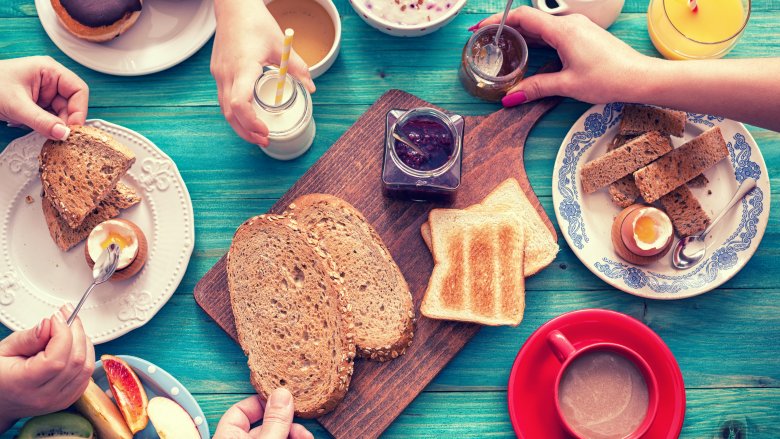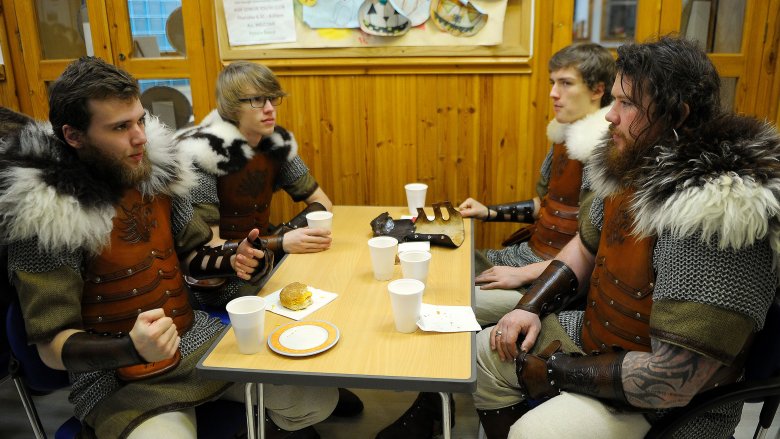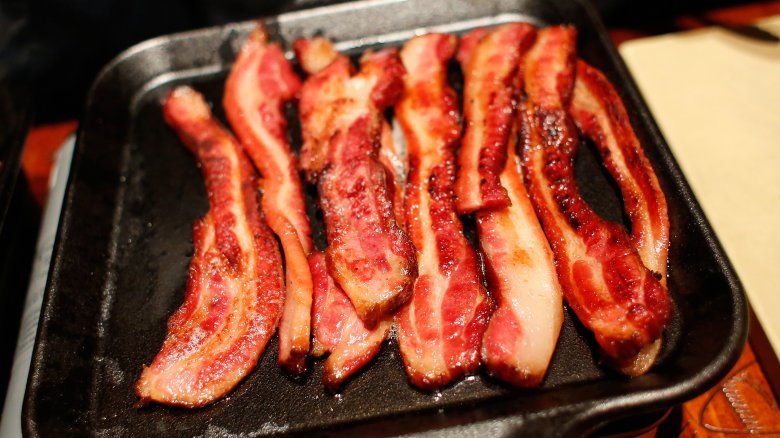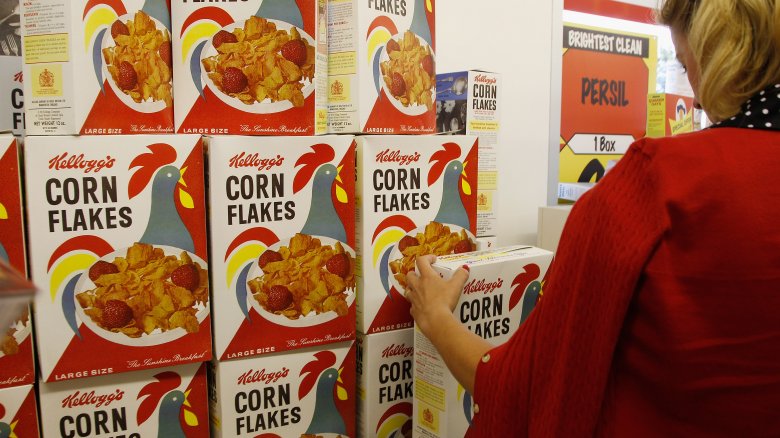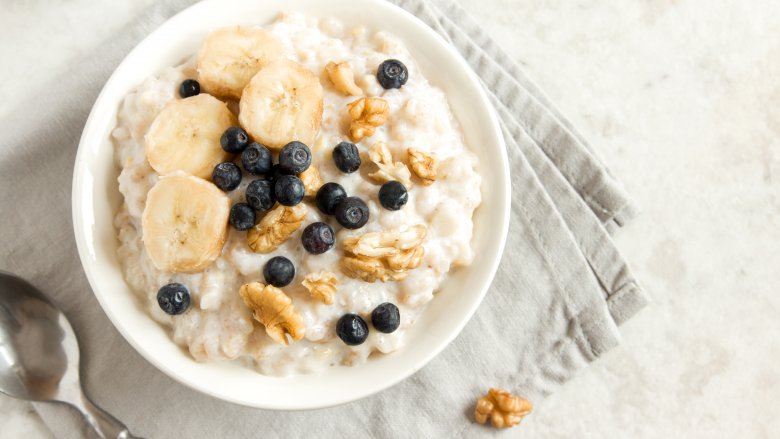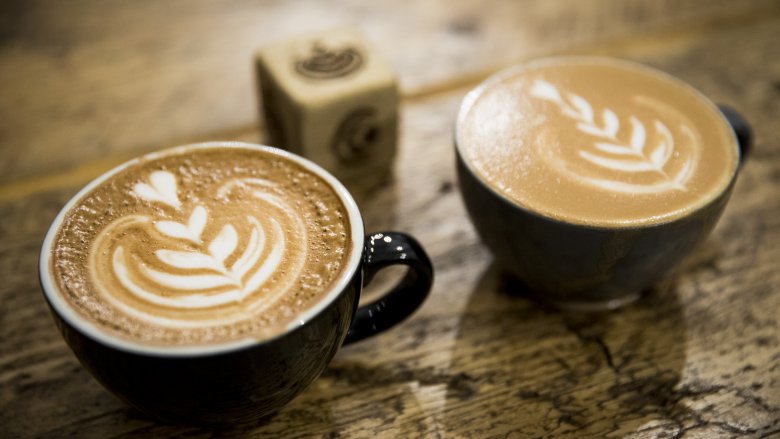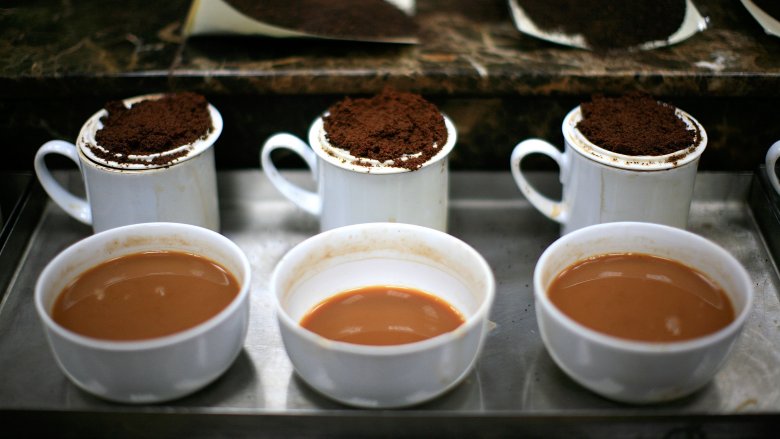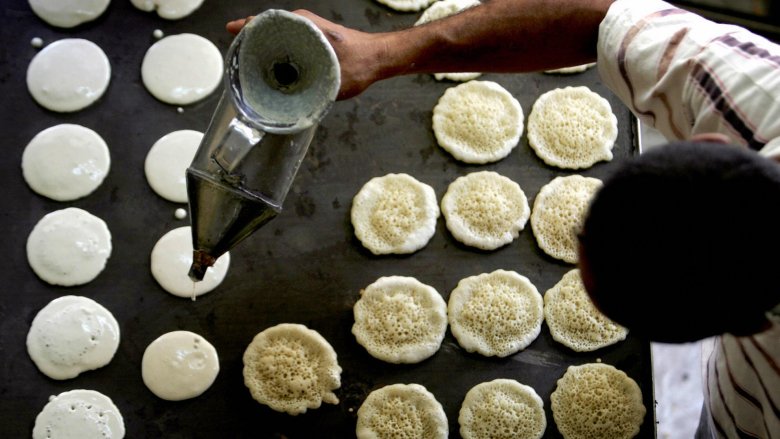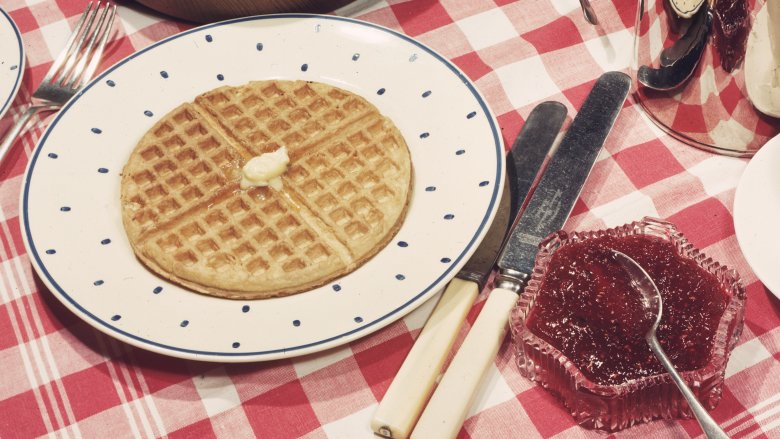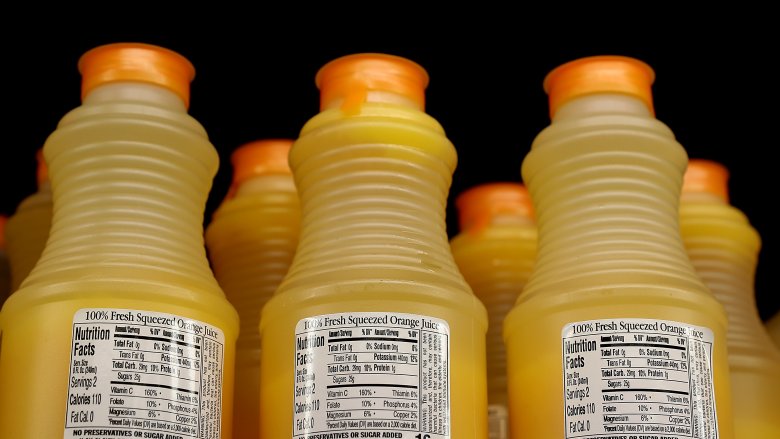The Secret History Of Breakfast
Whether you're sitting down to a spread of pancakes, hash browns, bacon and eggs, or just grabbing a granola bar and a giant-sized coffee on your way into work, there's a good chance you start every day with breakfast. After all, we've been told many times that it's the most important meal of the day.
But breakfast hasn't always been part of people's daily routine, and the foods and drinks we associate with breakfast have only become standard over time, often as part of a very deliberate effort to get people to change their breakfast habits. Why do we eat cornflakes? Why are pancakes a breakfast food? And what did we drink at breakfast before we had coffee? Discover the truth about your morning meal in the secret history of breakfast!
The invention of breakfast
Breakfast is such a familiar part of the daily routine that we assume it's something people have always enjoyed. Doesn't everyone need to refuel after a good night's rest? But the truth is, there's nothing standard about a morning meal. In medieval Europe, eating early in the day was only a necessity for those who worked so early that they had to eat early, or for the elderly and infirm. The great 13th century theologian Thomas Aquinas thought it a sin to eat too early in the day, and eating before morning mass was frowned upon because fasting was a religious observation, and breakfast literally means breaking one's fast.
Historian Ian Mortimer suggests the Tudors invented modern breakfasts in the 16th century as a side-effect of inventing the concept of employment. As people increasingly came to work for an employer, rather than working for themselves on their own land, they lost control of their time, and had to work long, uninterrupted days without sustenance. A big breakfast allowed them to work longer days. The Industrial Revolution and the move from farms to factories formalized the idea of breakfast further, and now it's normal for everyone to eat breakfast before going to work. If we hadn't invented the 9-to-5, we might never have invented breakfast.
Bacon for breakfast was the doctor's orders
For many people, the combination of bacon and eggs forms the basis for the archetypal hot breakfast. Eggs have long been a popular breakfast food, perhaps because fresh eggs were often available early in the day, but their partnership with bacon is a 20th century invention. In the 1920s, Americans ate very light breakfasts, so public relations pioneer Edward Bernays persuaded doctors to promote bacon and eggs as a healthy breakfast in order to promote sales of bacon on behalf of Beech-Nut, a packaging company that had diversified into food production.
Bernays convinced 5,000 doctors to sign a letter recommending a hearty breakfast, and publicized this conviction in newspapers, with bacon and eggs presented as the ideal start to the day. Sales of Beech-Nut bacon increased, and we've been eating bacon for breakfast ever since.
Breakfast cereal was invented to save us
Breakfast cereals didn't exist until the 19th century, and like bacon, we started eating them on doctors' orders. Breakfast cereal was invented to promote general health and well-being, but also with a very specific medical agenda in mind. None other than Dr. John Harvey Kellogg, the man who gives his name to one of the world's most famous breakfast cereal brands, invented first granola and then cornflakes as part of a puritan diet designed to suppress sexual desire and lead America away from sin. Yes, breakfast cereal was supposed to save us from masturbation.
One of Kellogg's patients at the sanitarium was salesman Charles M. Post, who so enjoyed his Kellogg's cereal that he was inspired to launch his own cereal empire, starting with Grape Nuts. In the end it was not spiritual benefits that led to cereal's popularity as a breakfast food, or even the health benefits — the real advantage of breakfast cereal is its convenience. A lot of early breakfast cereals had to be cooked, but the more successful ones were those that could be enjoyed with zero prep time. Manufacturers have since tried to boost their products in a crowded marketplace by making them sweeter and more fanciful, and today many cereals are so high in sugar and carbohydrates that they may end up sending you back to the doctor.
Oatmeal changed the world
Oatmeal is much older than breakfast, and its invention may have changed the course of human history. When humanity switched from a hunter-gatherer model of society to a model of grain and livestock farming, early settlers were able to create cereal-based mush that could be fed to children. Researcher Alistair Moffat claims that this freed women up from breastfeeding children whose milk teeth could not manage tough food, which led to a population explosion that allowed for the rapid spread of humanity.
Hot grain-based cereals are still eaten all day and everyday in cultures all around the world, from the Asian rice porridge called congee, to wheat porridge served in the Middle East and India, and maize porridges like grits in North America. While other healthy breakfast fads come and go, experts still swear by the benefits of oatmeal or porridge as a hearty way to start the day, thanks to the high nutritional value and high fiber content of whole grains.
Coffee wasn't always a breakfast star
Coffee didn't become a popular drink in Europe until the 19th century, so people were making a start on their days for centuries without a daily dose of Java. In fact, before coffee became the staple breakfast drink for millions, many people started their day with alcohol! For Ancient Egyptians, the morning meal consisted of bread and beer, while Ancient Greeks preferred wine, and the Romans did the same. Even in pre-Industrial Europe, when pollution made it a bad idea to drink the water, "beer soup" was a popular breakfast option.
The reason coffee became so popular at breakfast is the same reason it's so popular today; caffeine. Just as eating breakfast at all was a by-product of the Industrial Revolution, so the arrival and increasing popularity of coffee in the 18th and 19th centuries went hand in hand with industrialization, providing a stimulating kick to productivity that hard-working drones still depend on today. Let's be honest, we would all get less done if we still started every day with beer or wine.
Breakfast tea was late to the game
Tea has never been restricted to a single time of day, but robust, highly-caffeinated tea blends designed specifically for drinking at breakfast are a 19th century idea. English apothecary Richard Davies is the first person known to have sold an English Breakfast tea in New York in 1843, while Scottish merchant Robert Drysdale created his own breakfast blend in the late 19th century that's thought to have been popularized as "English Breakfast" due to the patronage of Queen Victoria.
Breakfast teas may have originally been made with Chinese black tea, but the growth of the Indian tea industry meant that breakfast blends were increasingly associated with strong Assam or Ceylon teas, which could stand up to the English habit of adding milk and sugar to tea. Even stronger Irish and Scottish breakfast blends followed English breakfast, though there's no established formula for any of these blends.
Pancakes are prehistoric
Humans as a species may have been eating pancakes since prehistoric times, according to analysis of stone age tools, as a delicious way of getting energy-rich starchy grains into our diet. In fact, Otzi the Iceman, the world's oldest naturally preserved human mummy, is thought to have eaten a wheat pancake as one of his last meals. Pancakes have been a staple part of our diets in just about every culture since, so why do we now mainly eat pancakes at breakfast time?
The answer may have something to do with how pancakes have changed over time. In Europe they tend to be thin, but American pancakes got fat in the 18th century with the addition of pearl ash as a leavening agent. These thicker pancakes were easy to make first thing in the morning, but at dinner people preferred bread with their meal, and cooks had all day to bake fresh loaves. For that reason, historians theorize, pancakes were consigned to the morning meal, and now it's hard to imagine any breakfast diner or brunch restaurant that doesn't serve up thick stacks of pancakes.
Waffles started as party food
There is an ongoing debate about whether pancakes or waffles are the superior batter-based breakfast, and it's a conversation that has literally divided America, but if you're wondering which one is the true breakfast food, the answer is neither; just like pancakes, waffles only gradually found their place as a staple of the breakfast table. In Belgium and the rest of Europe they were a form of street food, eaten by hand, and especially popular during religious festivals.
Waffles only really came into the home with Cornelius Swartwout's invention of the stovetop waffle iron in 1869, followed by the electric waffle iron in 1911. But the real breakthrough for waffles' popularity as a breakfast food may have been the invention of frozen waffles by the Dorsey brothers, who had made their fortune as mayonnaise manufacturers under the brand name Eggo, and found still greater success when they built a machine that could produce 1,000 frozen waffles in an hour!
OJ found success because of the flu
Much like bacon and breakfast cereal, the popularity of orange juice as a morning drink has a lot to do with how it was marketed to the world for its health benefits, rather than any innate association between juice and mornings. Oranges are so perishable that, for most of history, orange juice wasn't really an option unless you lived near an orange grove. That changed with the advent of juice pasteurization in the early 20th century, which allowed canned juice to reach consumers everywhere.
A boom time for orange juice followed, as the worldwide influenza outbreak that claimed thousands of lives in 1918-1919 ensured that people were suddenly very passionate about vitamins, and bumper crops of Florida oranges created a ready supply of canned orange juice for American breakfast tables. We've associated orange juice with good health and bright mornings ever since, but the truth is, a lot of commercial orange juice is stripped of its freshness, character, and nutritional benefits by industrial processing, and much of the flavor is artificially added back in using "flavor packs". The result is a drink that's basically sugar in a glass.
